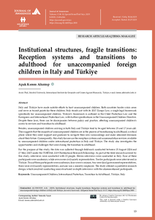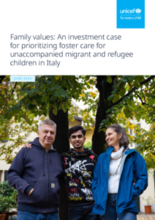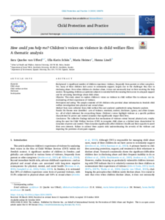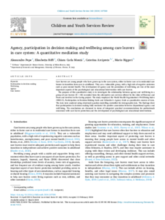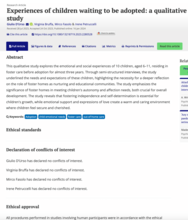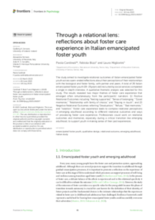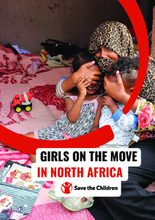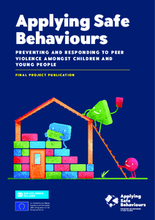Displaying 1 - 10 of 95
This article explores a pilot study in Italy in which care-experienced young people acted as co-researchers to examine perceptions of child maltreatment and state intervention, focusing on the co-construction of knowledge between survivors and academic researchers. It finds that peer-led research strengthens epistemic justice and professional practice by integrating lived experience with academic analysis and fostering relational, supportive spaces for young people’s voices in care proceedings.
Italy and Türkiye, both key transit countries for unaccompanied children, have legal frameworks to support them, yet gaps between policy and practice hinder access to services and a smooth transition to adulthood. This study, based on qualitative fieldwork and 23 interviews conducted in both countries, examines reception systems, accommodation services, and the challenges unaccompanied children face during this critical life stage.
Migrant and refugee children arriving in Italy often face significant trauma, having fled war, violence, and exploitation, and survived one of the world’s most dangerous migration routes across the central Mediterranean. UNICEF’s Terreferme project has shown that foster care placements cost municipalities significantly less than residential facilities, with the added benefit of strengthening the social service workforce through training and case management.
Drawing from an Italian study conducted in residential care for children, the authors aim to investigate residential childcare educators' levels of compassion fatigue and work engagement, and to focus on the individual, work and organisational conditions associated.
The purpose of this quantitative study is to investigate the relationship between agency and well-being in a group of care leavers (N = 48) recruited from the alternative care services offered by the cities of Florence and Prato in Italy and involved in the Caring project.
This qualitative study explores the emotional and social experiences of 10 children, aged 6–11, residing in foster care in Italy before adoption for almost three years. Through semi-structured interviews, the study underlined the needs and expectations of these children, highlighting the necessity for a deeper reflection on the role of foster homes as nurturing and educational communities.
Italy and Libya signed on December 20 an agreement allowing the evacuation of 1,500 vulnerable migrants from Libya to Italy, over the next 3 years.
This study aimed to investigate relational outcomes of Italian emancipated foster youth across open-ended reflections about their perceptions of their relationships with the biological and foster family, with partner and peers.
This study aims to address a gap in migration research, by developing a holistic and gender-specific understanding of the migratory patterns and experiences of girls in, through, and to North Africa. To do so, the research team employed a qualitative research approach, informed by child- and gender-sensitive practices, to collect data from girls and boys in Italy, Spain, Morocco, and Tunisia.
The project aims to make children and young people active agents in creating a safe environment for themselves and their peers, and to enable professionals who work with and care for children and young people to respond appropriately to peer violence amongst them.

